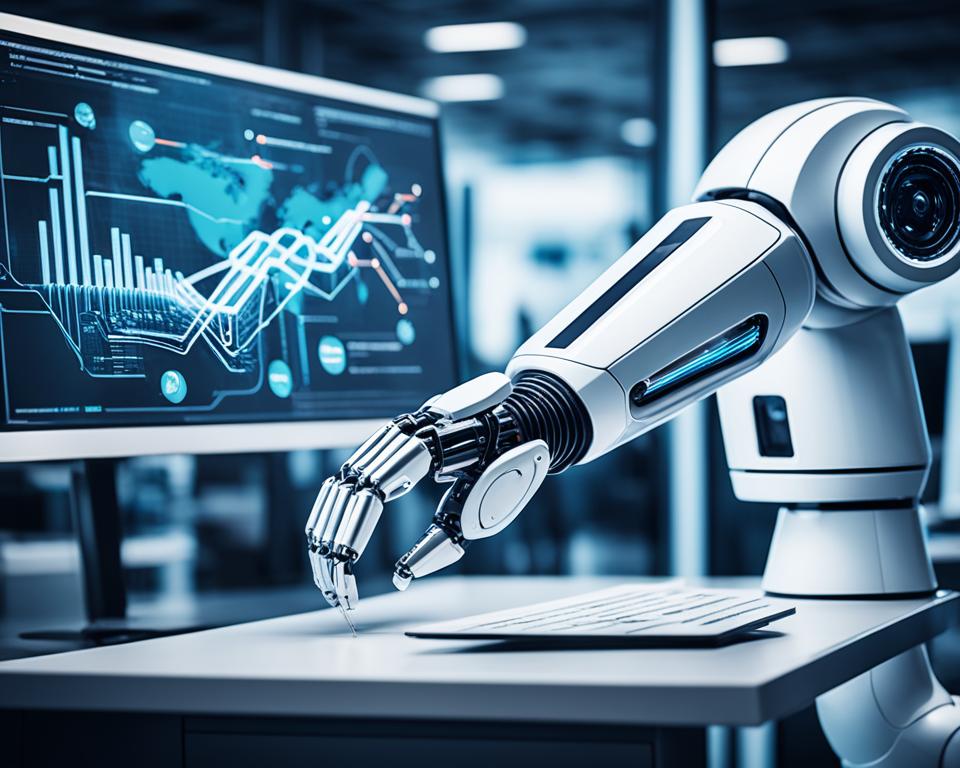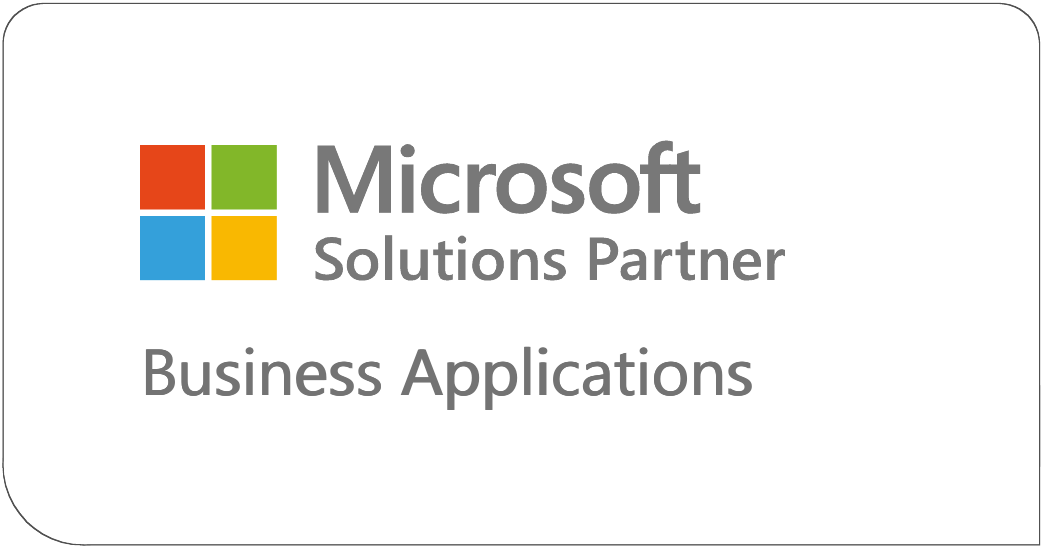|IMPERIUM DYNAMICS
Did you know that adding artificial intelligence to ERP
can boost efficiency by up to 30%? In today's fast-paced
business world, ERP AI is changing how
companies manage their operations. It's not just about
managing resources anymore. With AI, businesses can
automate tasks and get insights from real-time data they
couldn't get before.
ERP AI is making
business automation smarter and more
flexible. As companies use more real-time data and
predictive insights, AI in ERP is becoming a must-have.
It helps with efficiency and makes better decisions
possible. This article will look at how
ERP AI is changing business management.
We'll cover its importance, benefits, challenges, and
what the future holds.

Key Takeaways
- ERP AI can boost operational efficiency by up to 30%.
- Combining AI with traditional ERP systems enhances business automation.
- Real-time data-driven insights are a key benefit of ERP AI integration.
- ERP AI improves both process optimization and decision-making capabilities.
- The role of ERP AI in modern business management is crucial and ever-expanding.
Understanding ERP AI and Its Significance
ERP AI is a new technology that combines traditional ERP systems with modern artificial intelligence. This mix helps businesses make smarter decisions and work more efficiently.

What is ERP AI?
ERP AI means adding artificial intelligence to ERP systems to make them better. It helps ERP systems do complex tasks by analyzing data, automating tasks, and predicting outcomes. The main aim is to make decisions based on data, which helps businesses grow and work better.
The Evolution of ERP Systems
ERP systems started as simple tools for managing data and planning resources. They've grown more complex over time, thanks to new technology. Adding AI to ERP systems is a big step forward. It turns these systems into powerful tools that give strategic insights and automate tasks.
Why AI is Crucial for Modern ERP?
Adding AI to ERP systems is key for today's businesses. AI helps process data better and make smarter decisions. It automates routine tasks and provides insights, helping businesses quickly adapt to changes. This agility is vital for staying competitive in today's fast-moving business world.
| Feature | Traditional ERP | ERP AI |
|---|---|---|
| Data Management | Manual Entry | Automated Analysis |
| Decision Making | Human-Driven | Intelligent Decision-Making |
| Task Automation | Limited | Extensive |
| Predictive Analytics | Minimal | Advanced |
Benefits of Integrating AI in ERP Systems
Adding AI to ERP systems brings many benefits, like better data analysis and predictive modeling . It helps businesses understand market trends and make smart choices.
Enhanced Data Analytics and Predictive Modeling
AI boosts the power of data analytics and predictive modeling in ERP systems. It quickly handles big data and turns it into useful insights. This means businesses can predict customer actions, market needs, and how operations will go.

Improved Decision-Making Capabilities
AI makes ERP systems better at making decisions by offering real-time data. Leaders use these tools to make smart choices. This leads to better use of resources and planning, keeping companies ahead in the market.
Process Optimization and Automation
AI is a game-changer for making ERP systems more efficient. It automates simple tasks, cutting down on manual work and mistakes. This makes processes smoother, boosts productivity, and makes businesses run better.
| Benefit | Description |
|---|---|
| Data Analytics | Enhanced capabilities to analyze large data sets and derive actionable insights. |
| Predictive Modeling> | Improved accuracy in forecasting market trends and customer behaviors. |
| Decision-Making | Informed and data-driven decisions for better operational efficiency. |
| Process Optimization | Streamlined workflows and automated tasks optimizing overall business processes. |
Challenges in Implementing AI for ERP
Using AI in ERP systems comes with many challenges. Businesses face issues like tech problems, the cost of AI, and keeping data safe. Each challenge needs careful thought for a successful setup.
Technological Barriers
One big challenge is making AI work with current ERP systems. Many companies struggle because their systems are complex. They need big changes to old systems, which is hard for a smooth start.
Cost and Resource Considerations
AI in ERP systems is expensive. Costs include setup, upkeep, and updates. Also, finding skilled people to manage AI systems adds more costs.
Data Security and Privacy Issues
Keeping data safe with ERP AI is very important. AI makes ERP systems more open to data breaches. It's key to have strong security to protect against cyber threats and keep data safe.
| Barrier | Impact | Solution |
|---|---|---|
| Technological Barriers | Compatibility issues with existing systems | System upgrades and modifications |
| Cost Considerations | High initial and ongoing costs | Budget allocation and financial planning |
| Data Security | Increased risk of data breaches | Enhanced security protocols and monitoring |
Future Trends in ERP AI
ERP AI trends are changing how businesses manage their operations. They show the big impact of artificial intelligence on planning and managing resources. We'll look at the new trends, like cognitive computing, robotic process automation, and moving from predictive to prescriptive analytics.
Cognitive Computing and Its Impact
Cognitive computing works like our brains but in a computer. It makes ERP systems smarter by understanding and handling lots of data. This tech helps businesses use ERP AI trends to make smarter choices and plan ahead, like IBM Watson does.
Advancements in Robotic Process Automation
Robotic process automation (RPA) is getting better at handling complex tasks in ERP systems. These changes make processes more efficient and accurate. This lets companies use RPA fully, improving how they work, making them more productive, and boosting performance.
Predictive and Prescriptive Analytics
ERP AI is moving from predictive to prescriptive analytics. Predictive analytics forecast what might happen using past data. Prescriptive analytics take it further by offering steps to take. This change helps businesses make better decisions, use resources well, and stay ahead in the market.
Conclusion
Artificial intelligence is changing how businesses manage their operations. This article showed how ERP systems with AI improve data analysis, predictive models, and decision-making. These tools help businesses run more efficiently and gain a competitive edge.
But, there are challenges like high costs and data security concerns. Yet, as AI technology gets better, these issues will likely fade away. For companies aiming to succeed online, using AI in ERP is essential.
The future looks bright for AI and ERP systems. They will bring more innovation and efficiency to businesses. By using AI in ERP, companies can stay ahead in a tough market.
FAQs
What is ERP AI?
ERP AI combines artificial intelligence with enterprise resource planning systems. It helps manage and optimize business processes. This includes intelligent automation, data analytics, and predictive modeling.
How has ERP evolved to include AI?
ERP systems have grown from simple data tools to complex platforms with AI. Now, they can handle complex tasks, offer real-time insights, and help make smart decisions. This makes operations more efficient and agile.
Why is AI crucial for modern ERP systems?
AI is key for ERP systems because it automates complex tasks, offers deep data insights, predicts trends, and helps make better decisions. This boosts productivity and gives businesses a competitive edge.
What are the benefits of integrating AI in ERP systems?
Adding AI to ERP systems brings many benefits. It improves data analysis and predictive modeling, enhances decision-making, and automates processes. These changes lead to better efficiency and smarter resource use.
What technological barriers exist in implementing AI for ERP?
Adding AI to ERP systems can be tough due to integration challenges, compatibility issues, and the need for specialized knowledge. These hurdles make it hard to manage and keep up with AI-driven systems.
What are the cost and resource considerations for integrating AI in ERP?
Integrating AI into ERP systems is costly and requires resources. It means spending on AI tech, ongoing maintenance, and hiring skilled people to manage the AI processes.
How does AI integration impact data security and privacy in ERP systems?
AI in ERP systems raises concerns about data security and privacy. These systems handle sensitive data. It's crucial to have strong security and follow data protection laws to avoid data breaches.
What is the impact of cognitive computing on ERP AI?
Cognitive computing boosts ERP AI's ability to handle big data, understand context, and provide deeper insights. It changes business intelligence and processes by enabling smarter, more adaptive decisions based on real-time data and complex algorithms.
How are advancements in robotic process automation (RPA) influencing ERP systems?
RPA advancements are changing ERP systems by tackling more complex tasks. RPA makes processes more efficient and accurate, reducing errors and freeing up people for strategic tasks.
What role do predictive and prescriptive analytics play in ERP AI?
Predictive and prescriptive analytics are key in ERP AI. They forecast trends and provide actionable advice to improve business processes. This helps organizations make proactive, data-driven decisions, boosting efficiency and competitiveness.
What are the future trends in ERP AI?
ERP AI's future includes more cognitive computing, RPA advancements, and a shift to prescriptive analytics. These trends will keep changing how businesses work, improving their strategic decisions and efficiency.

